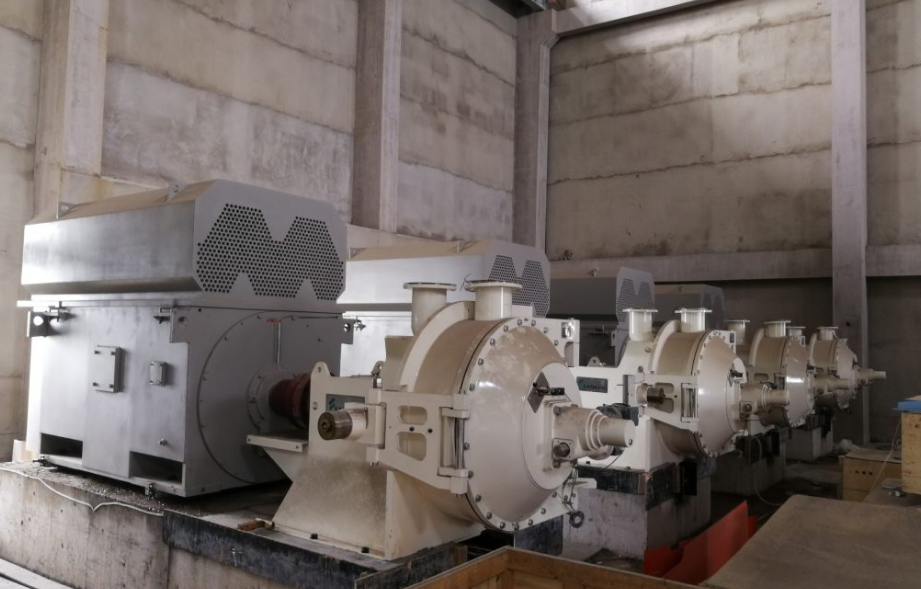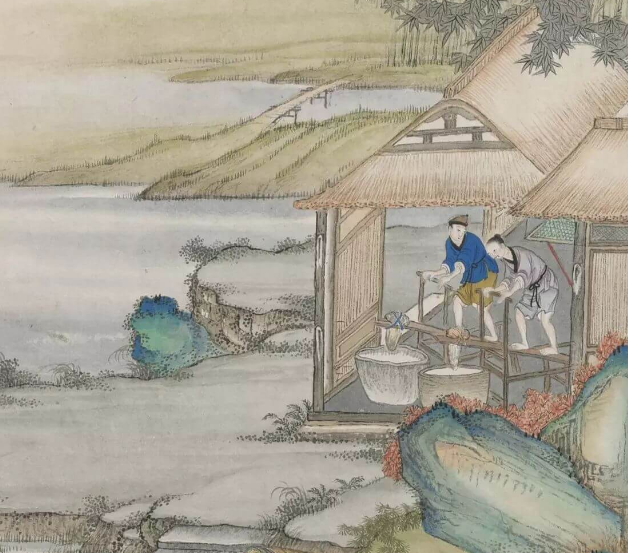Current situation and development trend of eucalyptus pulp in China

At present, the main way to use eucalyptus pulp is to produce wood chips for export. The national annual production of wood chips is 3 million tons (dry, the same below), mainly exported to Japan, South Korea and Taiwan and other countries and regions. In South China alone, the annual export volume of eucalyptus wood chips reaches 1 million tons, and the annual foreign exchange income is nearly 100 million US dollars. After the export of eucalyptus wood chips, the economic value increased by 4.6 times, and the profit and tax increased by 18 times. At present, the main provinces of production and export of eucalyptus wood chips in China are Guangdong, Guangxi and Hainan, among which Zhanjiang, Haikou and Beihai are the centers, and Zhanjiang port is the most. For example, there are about 450,000 hm2 of eucalyptus trees in Guangdong Province, and the production areas are mainly Zhanjiang, Maoming, Yangjiang and other cities, with a production capacity of more than 400,000 t and a production potential of 750,000 t. In 1987, China began to export eucalyptus wood chips to Japan, South Korea and Taiwan. From 1987 to 1997, the export volume of eucalyptus wood chips in China showed an increasing trend year by year. After 1997, due to the influence of many factors such as the international situation and prices, the number of eucalyptus wood chips declined year by year. Since 2002, the price of eucalyptus wood chips has gradually recovered, and the newly signed agreement between Leizhou Forestry Bureau and Japanese Prince Company wood chips (absolute dry) price is 104 US dollars per ton.
2.2.2 Overview of pulping In the past 20 years, a large number of experimental studies have been carried out on eucalyptus pulping in China, and more systematic results have been achieved. The pulping and papermaking experiments of lemon eucalyptus, limbic eucalyptus, salix eucalyptus, blue eucalyptus, straight rod blue eucalyptus, red eucalyptus, urophylla eucalyptus, macrophylla eucalyptus and grape eucalyptus have been carried out in Guangdong and Guangxi Paper Research Institute. In the national research projects, the Institute of Forestry and Forestry of the Chinese Academy of Sciences and Nanjing Forestry University have also done pulping experiments on lemon eucalyptus, urophylla eucalyptus and other tree species. - In addition to Eucalyptus, it is generally believed that suitable pulp and paper products can be produced from lemonpress, eucalyptus fornix, Eucalyptus urophylla, Eucalyptus grandis and Eucalyptus Raylin No. 1. The whiteness and strength of eucalyptus pulp are suitable for high and middle grade cultural paper, and the yield of eucalyptus pulp is higher than that of coniferous wood pulp, with less alkali consumption, low energy consumption, easy bleaching and good strength. At present, four paper mills have been built in Nanning, Liujiang, Liuzhou and Hezhou in Guangxi, one of the main producing areas of eucalyptus in China, with an annual production capacity of more than 250,000 tons, and the chemical pulp of eucalyptus accounts for 20% of the total chemical pulp. 3 Development trend 3.1 Scientific research foundation After the national "Seventh Five-Year Plan" to "tenth Five-Year Plan" scientific and technological research projects and through international cooperative research, China's eucalyptus research has initially reached the international equivalent level. In particular, The State Council undertook the national eucalyptus research project, and established a large number of seed source, family tests and artificial cross breeding tests in 8 provinces and regions, and propagated materials in more than 300 families, from which the average annual growth of excellent hybrid families reached 45 ~ 50m3•hm-2. At the same time, breeding for resistance to wind, cold and disease was also carried out, and 5 excellent clones and 8 cold-resistant families were screened for resistance to gale force 10 ~ 11, some of which could withstand low temperatures of minus 10 degrees Celsius. Through these studies, a total of 2 727 excellent phenotypic individuals were selected, 34 excellent clones were selected, the annual growth rate was up to 54.6 m3•hm-2, 2 326 genetic resources were collected, and 78 hm2 gene preservation bank was established. In terms of eucalyptus forest management technology, the research on supporting technologies such as rapid growth and high yield of eucalyptus and optimized cultivation mode has obtained a series of research results on the afforestation density, land preparation method, formula fertilization, combination of multiple cultivation measures, growth and harvest mode and afforestation in hills and mountains under different land types of eucalyptus in different regions, and many of them have been successfully applied in production. Especially, the research of hardy eucalyptus in recent 10 years has provided the conditions for China's eucalyptus cultivation area to move northward and advance into the mountains.

The vegetative propagation technology of eucalyptus seedling is fully mature, and the factory tissue culture seedling has been widely used in production. At present, in Guangdong and Guangxi, there are more than 10 factories with an annual output of 10 million eucalyptus tissue culture seedlings, especially the establishment of national forest seedling demonstration base in southern China, which will produce 40 million eucalyptus seedlings annually. These seedling plants can also greatly expand the production capacity, which can provide enough high-quality seedlings for large-scale eucalyptus afforestation. 3.2 Policy support With the increasing shortage of forest resources in China and the worsening of the ecological environment, the Party Central Committee and The State Council attach great importance to the word. The Third Plenary Session of the 15th CPC Central Committee stressed the need to improve the ecological environment, put forward a strategy for sustainable development, and deployed a series of key forestry projects, including the construction of a shelterbelt system and natural forest protection projects.
- ABB
- General Electric
- EMERSON
- Honeywell
- HIMA
- ALSTOM
- Rolls-Royce
- MOTOROLA
- Rockwell
- Siemens
- Woodward
- YOKOGAWA
- FOXBORO
- KOLLMORGEN
- MOOG
- KB
- YAMAHA
- BENDER
- TEKTRONIX
- Westinghouse
- AMAT
- AB
- XYCOM
- Yaskawa
- B&R
- Schneider
- Kongsberg
- NI
- WATLOW
- ProSoft
- SEW
- ADVANCED
- Reliance
- TRICONEX
- METSO
- MAN
- Advantest
- STUDER
- KONGSBERG
- DANAHER MOTION
- Bently
- Galil
- EATON
- MOLEX
- DEIF
- B&W
- ZYGO
- Aerotech
- DANFOSS
- Beijer
- Moxa
- Rexroth
- Johnson
- WAGO
- TOSHIBA
- BMCM
- SMC
- HITACHI
- HIRSCHMANN
- Application field
- XP POWER
- CTI
- TRICON
- STOBER
- Thinklogical
- Horner Automation
- Meggitt
- Fanuc
- Baldor
- SHINKAWA
- Other Brands




































































































































